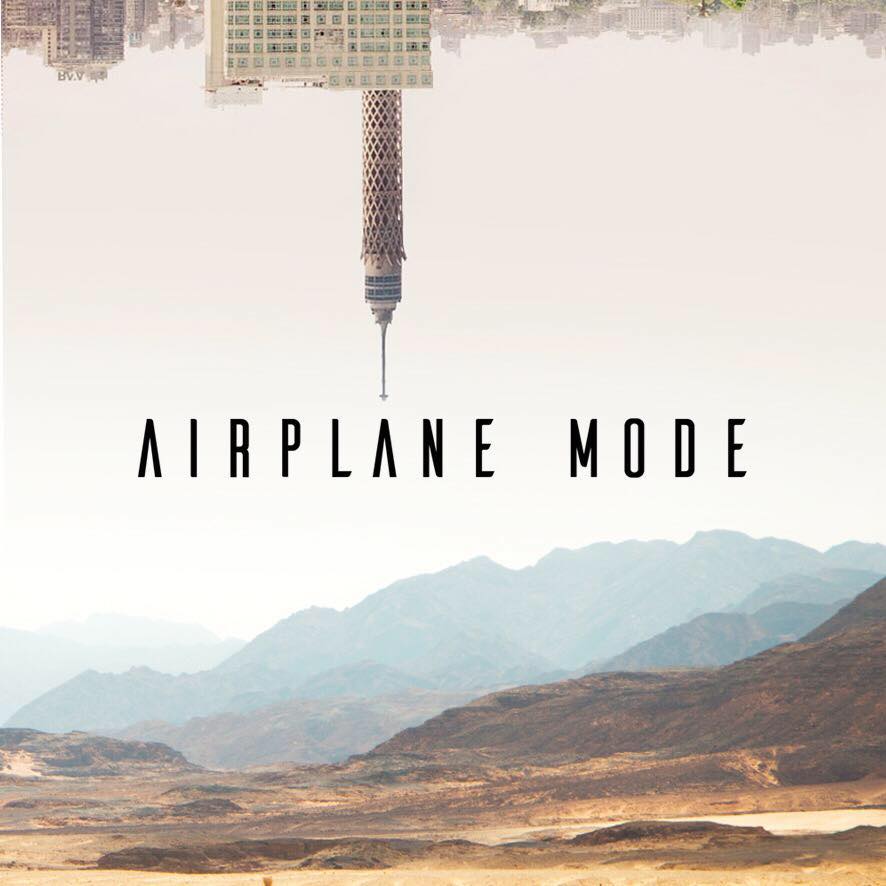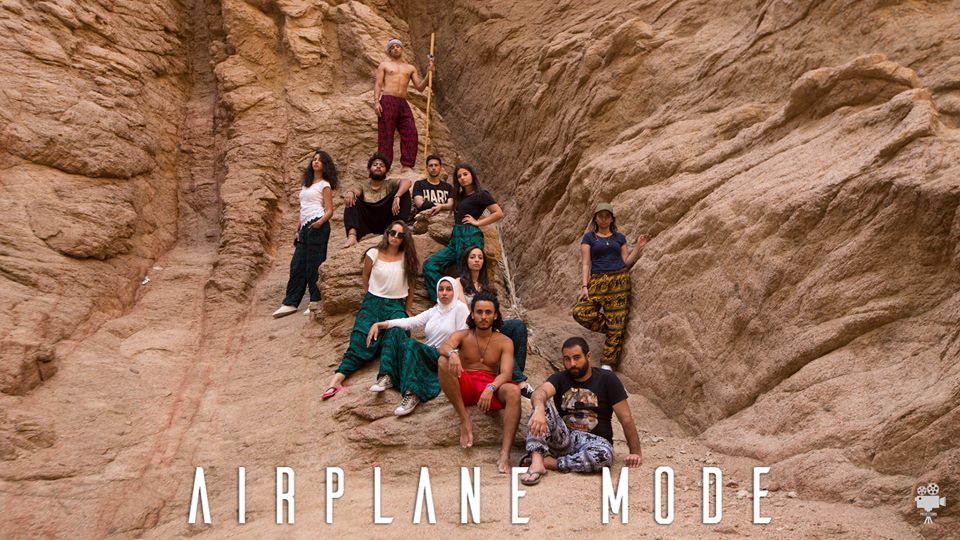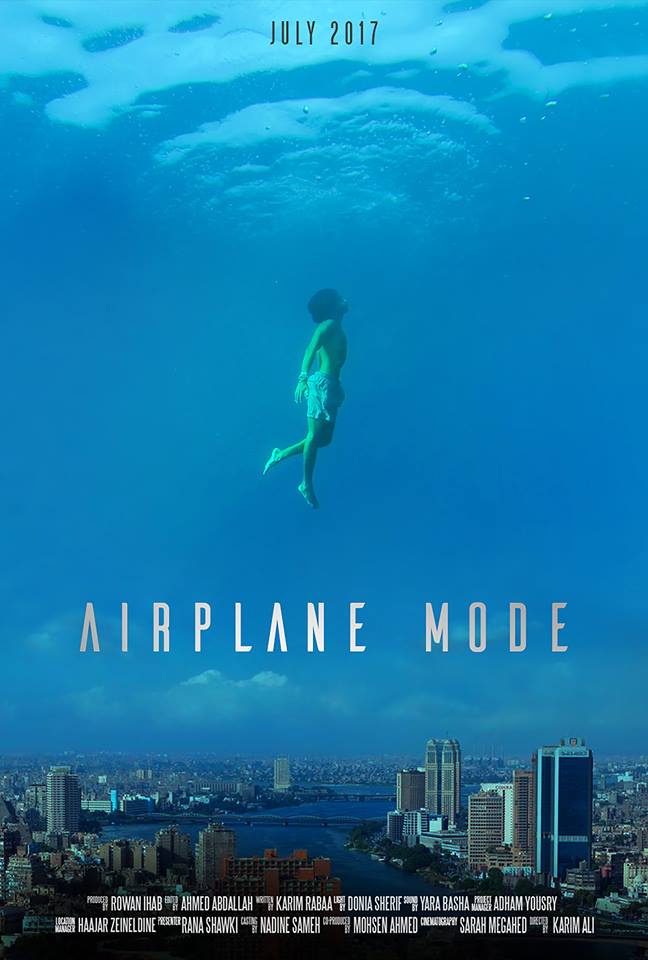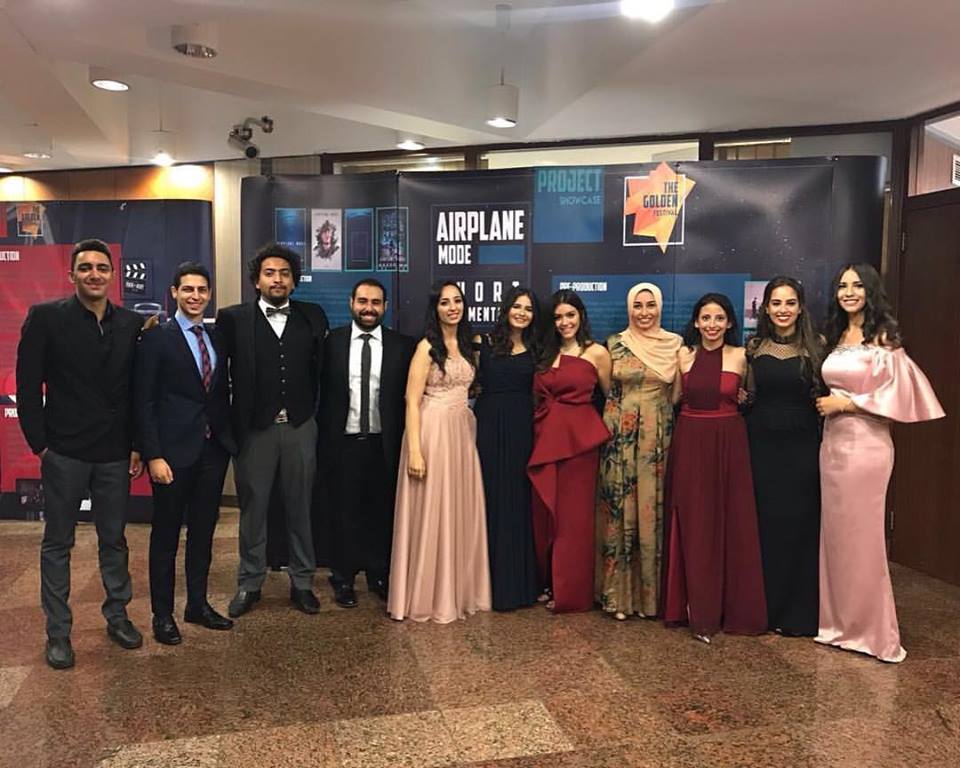After five months of working their fingers to the bones, a group of students from Alexandria, Egypt — who also happen to be the filmmakers of Airplane Mode — got to witness their graduation project turn into something.
Airplane Mode is a documentary film that tells the stories of four Egyptian nomads, who decided to quit corporate slavery, turning their lives upside down in search for a peaceful world away from the hectic city life.
The students worked under the supervision of the Media Management department at the reputable Arab Academy for Science and Technology. The department’s graduation project ceremony, where the film was screened privately, was held last July at Bibliotheca Alexandrina. The project has received support from fans on social media including superstar Hany Adel, as well as positive feedback from celebrities and public figures that attended the screening.
The team consists of Director and Cinematographer, Karim Ali; Scriptwriter and Social Media Specialist, Karim Rabaa; Editor and Cinematographer, Ahmed Abdallah; Location Manager and Social Media Specialist, Haajar Zeineldine; Social Media Specialist and Cinematographer, Sara Megahed; Casting Director, Nadine Sameh; Presenter, Rana Shawqi; Sound Engineer, Yara Basha; Lighting Engineer, Donia Sherif; Producer, Rowan Ihab; Co-Producer, Mohsen Ahmed; and last but not least, Teaching Assistant and Producer, Adham Yousri.
We had a little chat with both Karim Ali and Karim Rabaa about the success of their project and the buzz it created. Here’s what they had to tell.

Tell us more about your vision and the message you were trying to get across to the audience?
KA: The first thing we thought of was that we wanted to produce something different, something that you don’t see every day.
KR: We then thought about encouraging people to explore Egypt more. People tend to either stay in the city or seek job opportunities abroad. We wanted to show people that there are other opportunities where they could also liberate themselves from the city’s constraints. They don’t necessarily have to move from one country to another.
Why Dahab?
KA: Three years ago, I went to Dahab for the first time and after only a couple of days I realized that this is where I want to spend the rest of my life. Afterwards, I learned that a lot of those who moved there had one thing in common, that it’s where they all found their calling.
KR: Additionally, Dahab has all the elements you could wish for in a place to live. It has the desert and the sea, yet it was the closest thing to the city. In other words, it has the best of both worlds.

Since documentaries are perceived as boring nowadays, how did you manage to overcome this challenge and create interest?
KR: Unfortunately, documentaries usually spoon-feed viewers with information. That’s why we decided to use storytelling techniques in order to make it more appealing. The film tells the story of the main character, Hesham Al Qersh, and three other stories running in parallel. Sameh Sokkar, Mohamed Jackie and Khaled Jamaica, each tell their story complementing Qersh’s story, creating an overall mood full of emotions, struggle and excitement, captivating just like it is in movies, while still being informative.
What was your greatest challenge?
KR: The main challenge was that the production required a lot of funds to come up with a decent end result. We managed to stick to a budget, but it was still too much for a graduation project. It was a very long ride from Alexandria to Dahab and after we came back from our first trip, we realized that we were missing half of the film. So we had to send back three team members as we couldn’t afford to send back the whole team.
KA: We also had another personal challenge which was to prove to everyone that this isn’t just a project, it’s a professional film, and this was what TV Presenter, Amr Al Leithy, told me at the ceremony.

As students who still didn’t have any sort of professional experience, how did it feel like screening the movie in front of big names in the film industry such as Mariam Na’oum, Samir Sabry and Sayed Ragab?
KR: I had a lot of mixed feelings that I cannot explain, but all I can say is that once I stood under the spotlight, I did it. I suddenly realized that we should be proud of our work and the level we reached, and that we shouldn’t be that scared. The kind of fear I had was the one that motivated me and pushed me forward.
KA: This also pushed us to produce something professional, but we couldn’t have done it without Adham Yousri, our Teaching Assistant. He helped us a lot in all phases of production and helped us keep our finances under control.

What was your favorite moment throughout the whole journey?
KA: Despite everything, the best moment was when we stood up on stage in front of 1,500 attendees cheering up for us. This was the same moment when I felt that we proved anyone who underestimated us wrong. Then I forgot all the struggles we went through, it was more than enough for me.
KR: For me, it was the bonding that happened between the team members on the trip. We got to know each other way more than we could’ve ever had in the past four years of university.
What are the future plans for the film? When does the public get to watch it?
KA: We still haven’t decided when it’s going to be out for the public yet. We’re planning to participate in some festivals first. We want to apply for Alexandria Film Festival, Cairo Film Festival and Luxor Film Festival. We’re planning to participate in other festivals abroad as well.
KR: The best thing is that people are actually eager to watch it, we get a lot of messages on our Facebook page asking about the premiere. This makes us feel that the film has a promising future.


